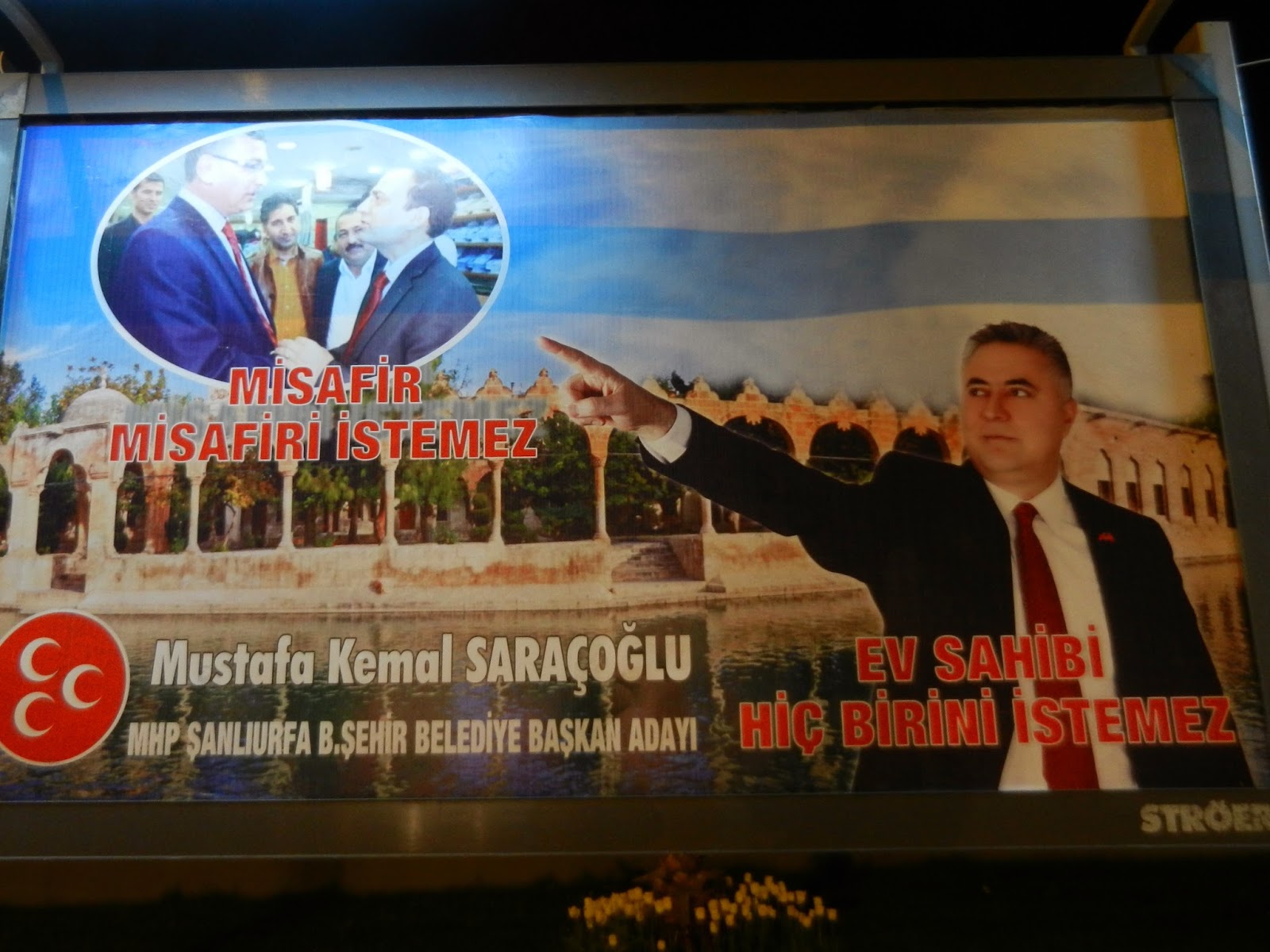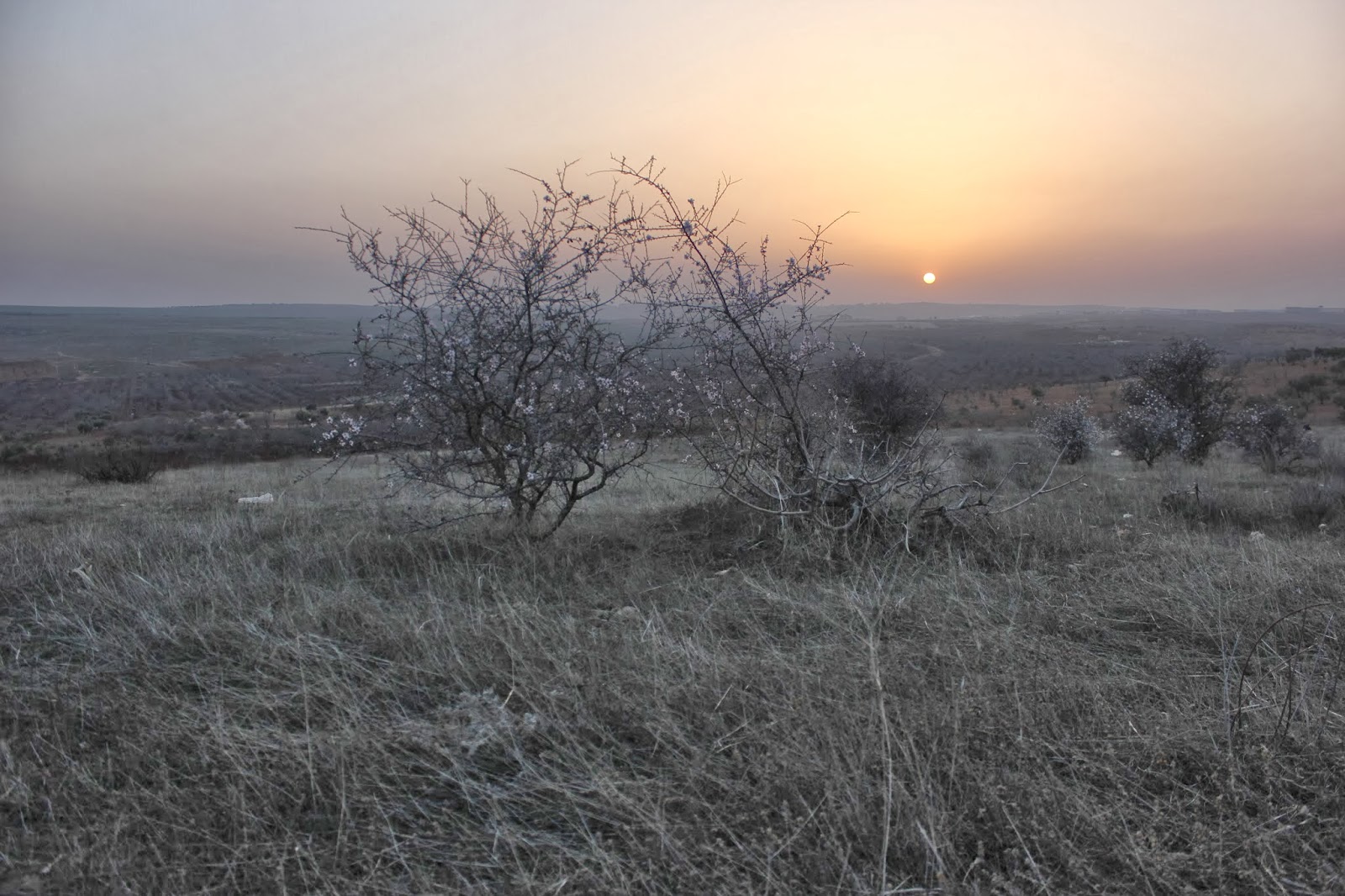In honour of the local elections on Sunday:
1. Think big
Back in February the AK Party messages were broad and vague. For a while I thought this said, "Big thought" which of course makes no sense. Prime Minister Erdoğan is on the right. On the left is the AK Party man running for Urfa mayor.2. There's no stopping; keep going
Another AK Party man, this one for Karaköprü mayor. *There are 3 or 4 municipalities within greater Urfa. I am still not clear.This candidate looks like a hopeful child. I love that his last name means "farmer."
3. While we're talking about awesome names...
Ibrahim "Black Cloud."He's using the political buzzword of the season, hizmet (service). He's running for a neighbourhood muhtar position, which translates to "chief" or "headman".
4. Seriously?
This man's last name means "screaming". He's running against Black Cloud, and also talking about hizmet. "It's not for money. It's for service," he says.
5. Interrupting this billboard tour to announce that
"Obama is living a forbidden love with Beyonce?"In case you wondered about Turkish news coverage of the Western world.
6. The BDP, i.e. the Kurdish party
They have so much going for them aesthetically.A) Awesome colour scheme (which apparently used to be forbidden)
B) Tree
C) The name? "Peace and Democracy Party"
7. Women, smiles!
They also have women running for positions, and people who smile for photographs (this is not even the best example).A friend tried to explain that in their political system requires a partnership between a man and a woman for every position. All I know is what I see: basically equal representation of male and female politicians.
8. vs... the man parade.
Blech.9. Osman Baydemir, the BDP's main man
I can't help but like this guy. He's short, kind of balding, and seems like a humble dude (he's the one on the left).His Wikipedia page does not disappoint. He was a founding member of the Human Rights Foundation of Turkey. He has received dozens of threats and hundreds of lawsuits, including one for writing a New Year's greeting using the letter "W" (forbidden until about a year ago, as it is used in the Kurdish alphabet, but not the Turkish).
10. Xenophobic much?
Here a guy points at Osman Baydemir's face and says something like "Guests are unwanted."This is about the fact that Osman Baydemir is not from Urfa. He's from Diyarbakir. He's actually Diyarbakir's current mayor.
"The homeowner doesn't ask for anyone," is my rough translation of the second part in red.
Would we expect anything else from the Nationalist Movement Party?
11. This guy has never smiled
He's the leader of the Nationalist Movement Party. He gives me the creeps. I only include him because he's been on TV a lot recently. He has a lot of negativity toward Erdogan, which I find interesting, because it's not just the Left attacking the current administration. Pretty much everyone can and does take the moral high ground these days, after the AK Party's corruption scandals.
12. I trust you, Sanliurfa
In spite of the scandals and the recent craziness of shutting down Twitter and YouTube, the AK Party is apparently poised to win at least some of the main positions in the election on Sunday. We'll see...































